Embarking on a recreational vehicle (RV) adventure can lead to some of the most memorable moments of your life. Whether it's the thrill of the open road, the tranquility of the great outdoors, or connecting with fellow travelers, the experience is punctuated by freedom and spontaneity. However, safety should always take precedence when preparing for such journeys. To ensure your RV escapades are as carefree as they are thrilling, equipping yourself with a range of safety equipment is not just advisable – it's essential.
Emergency RV Communication Devices
In the remote areas where many RVers choose to roam, cellular service can be as fleeting as the wind across the plains. Without the ability to make a call, the simplest mishap can quickly turn serious. That's why investing in reliable emergency communication devices is a non-negotiable part of any RV safety kit. From satellite phones that can reach help anywhere on the globe to two-way radios that keep you connected within a group, there's a breadth of options to suit different needs and budgets.
Satellite Phones
Satellite phones are lifelines for RVers navigating the wilds. They don’t rely on terrestrial towers, so they can summon aid from the most desolate of locations. While the initial cost and per-minute charges can be high, the peace of mind they offer is invaluable, particularly for those who venture far off the beaten path.
Two-Way Radios
When traveling in a group, two-way radios allow for direct communication between vehicles, which can be essential if you encounter sudden changes in plans or need to address the convoy quickly. Their simplicity and cost-effectiveness make them a popular choice for many RV enthusiasts.
Personal Locator Beacons
In the direst situations, a personal locator beacon can be a game-changer. When activated, they alert search and rescue services of your exact location, often within minutes. Compact and affordable, these devices are a beacon of hope in emergencies.
First Aid Kits and Medical Supplies
Accidents happen, and being prepared to handle them is part and parcel of responsible RV travel. A well-stocked first aid kit should be kept in an easily accessible location in the RV, and all passengers should be aware of its whereabouts. The kit should be regularly checked and restocked, ensuring that all items, from band-aids to burn dressings, are within their expiration dates and ready for use.
Customized First Aid Kits
No two adventurers' needs are the same, which is why a one-size-fits-all first aid kit may not be sufficient. Tailor your kit to match the anticipated activities and length of your trip. Hiking in bear country? Include anti-venom kits. Planning a beachside vacation? Don't forget the jellyfish sting relief solution. The specificity of your kit can quite literally save lives.
Prescription Medications
For those with chronic conditions, ensuring an ample supply of prescription medications is vital. In addition to stockpiling your prescription, it's advisable to carry a medical history and list of emergency contacts, as well as copies of your prescriptions, in case of loss or unforeseen separation from your medication.
Fire Safety Equipment
An RV is essentially a mobile home, albeit on a much smaller scale. Just as you would at home, it's imperative to equip your RV with fire safety devices to detect, prevent, and control fires.
Smoke and Carbon Monoxide Detectors
These small yet powerful devices are your first line of defense against the silent hazards that are smoke and CO. Ensure they are both installed and regularly tested to keep the sensors in good working order. If your RV LP Gas and Carbon Monoxide detectors are battery-powered, always have spare batteries on hand.
Fire Extinguishers
The importance of fire extinguishers cannot be overstated. All RVs should have at least one, and it should be easily accessible in the event of a fire. It's wise to take the time to learn how to use it correctly – the acronym 'PASS' (Pull, Aim, Squeeze, Sweep) is a good memory aid.
Flame-Resistant Materials
Prevention is key, and using flame-resistant materials for upholstery and clothing can greatly reduce fire hazards. When setting up camp, be mindful of where you place cooking equipment to prevent accidental fires, and always supervise cooking and open flames.
Emergency Roadside Assistance Gear
Tire blowouts, engine malfunctions, and battery failures are all too common, and they're not trivial matters when you're hundreds of miles from the nearest repair shop. An emergency roadside assistance kit can keep you comfortable, signal help, and even get you back on the road in certain instances.
Vehicle Maintenance Items
Basic tools like tire jacks and lug wrenches, along with spare fuses and other common RV parts, can facilitate quick repairs. If you're not mechanically inclined, consider a membership with a nationwide roadside assistance service – a virtual pit crew in your pocket.
Reflective Warning Triangles
If your RV breaks down, you'll want to be visible to oncoming traffic, particularly at night or in inclement weather. Reflective warning triangles set out a visible perimeter around your vehicle, keeping both yourself and fellow motorists safe.
Safety Reflective Gear
Visibility, as the saying goes, is life. Whether you're changing a tire at dusk or trying to keep your group together in a crowded RV park, being seen in low-light conditions is essential.
High-Visibility Vests
Maintain a couple of high-visibility vests in your RV and wear them any time you exit the vehicle in low-light situations. They're cheap, they're effective, and they just might save you from an unseen driver's mistake.
Reflective Tape and Stickers
Applying reflective tape to your RV can make it more conspicuous to other drivers. Consider putting strips on the rear and sides of the vehicle, especially at eye level, where they're most visible.
GPS Navigation and Maps
Smartphones and GPS devices can be incredibly helpful, but they're not infallible. An old-fashioned map and compass are indispensable as backup systems.
GPS Units
Modern GPS units designed for RV use can avoid low bridges, narrow roads, and other potential hazards specific to RVs. With lifetime map updates, you can trust in accurate routing year after year.
Paper Maps
Even the best GPS can lose signal, and technology can fail. Keep a current road atlas or paper maps of the areas you'll visit. They don't need a power source and are an excellent way to teach navigation skills to younger travelers.
Weather Monitoring Tools
From sudden storms to temperature drops, the weather can be unpredictable. Being aware of your current and forecasted conditions is key to staying prepared.
Mobile Weather Apps
There are myriad weather apps available for smartphones that can keep you informed of impending weather changes. Many of these apps can provide alerts for severe weather, ensuring you have time to prepare or change course.
Handheld Anemometers
For the truly weather-obsessed or those traveling into potentially severe weather areas, a handheld anemometer can provide real-time wind conditions. It's a valuable tool for boondockers, sailors, and those who frequent higher elevations.
Safety on the open road is not a matter to be taken lightly. By investing in emergency communication, first aid, fire safety, roadside assistance, reflective, navigation, and weather monitoring gear, you can turn an already-adventurous RV trip into a truly safe experience. Remember, the best adventures are those from which you return, so pack smart, and travel prepared.


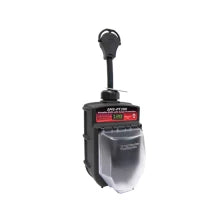
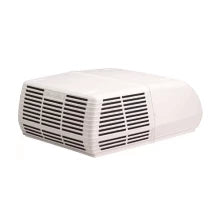
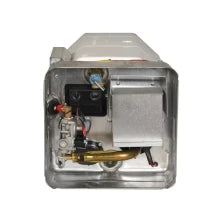
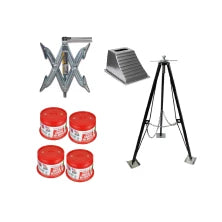
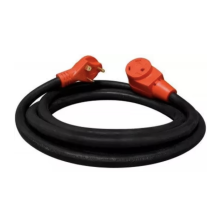
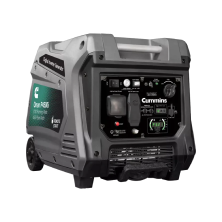
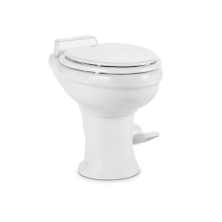
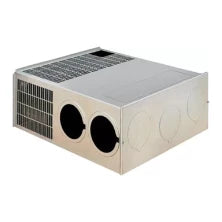
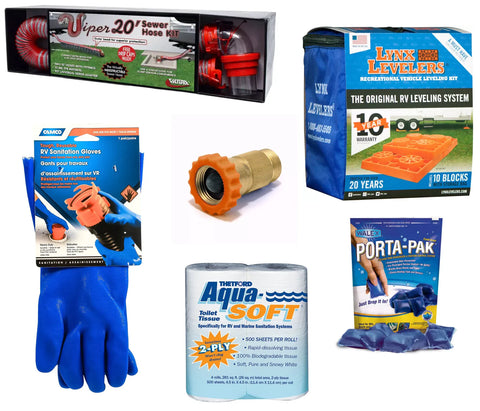
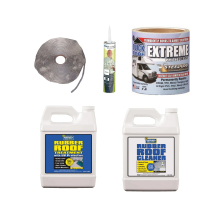
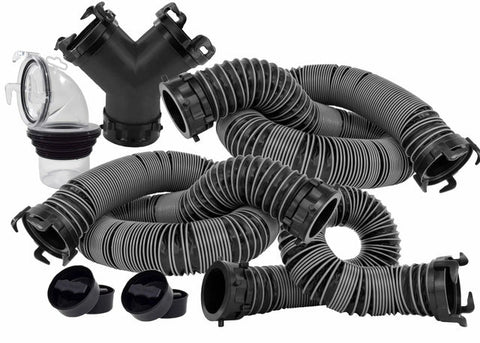
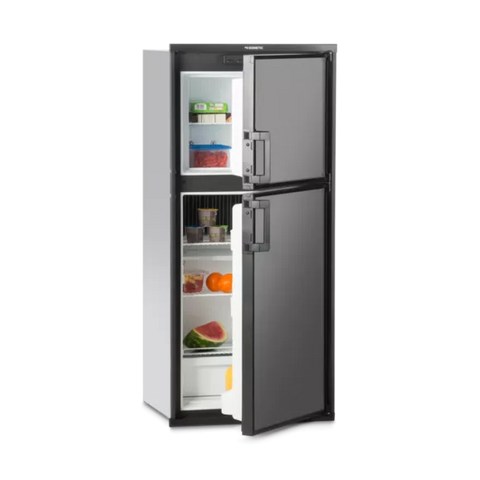
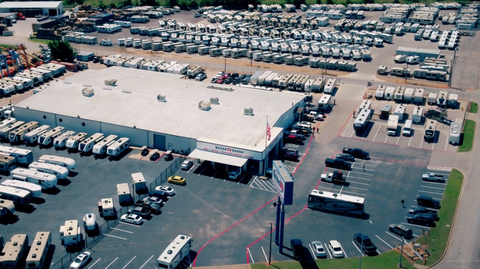
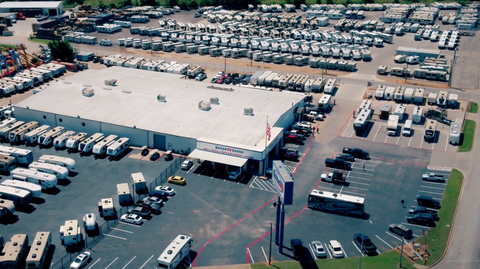
Comments (0)
There are no comments for this article. Be the first one to leave a message!